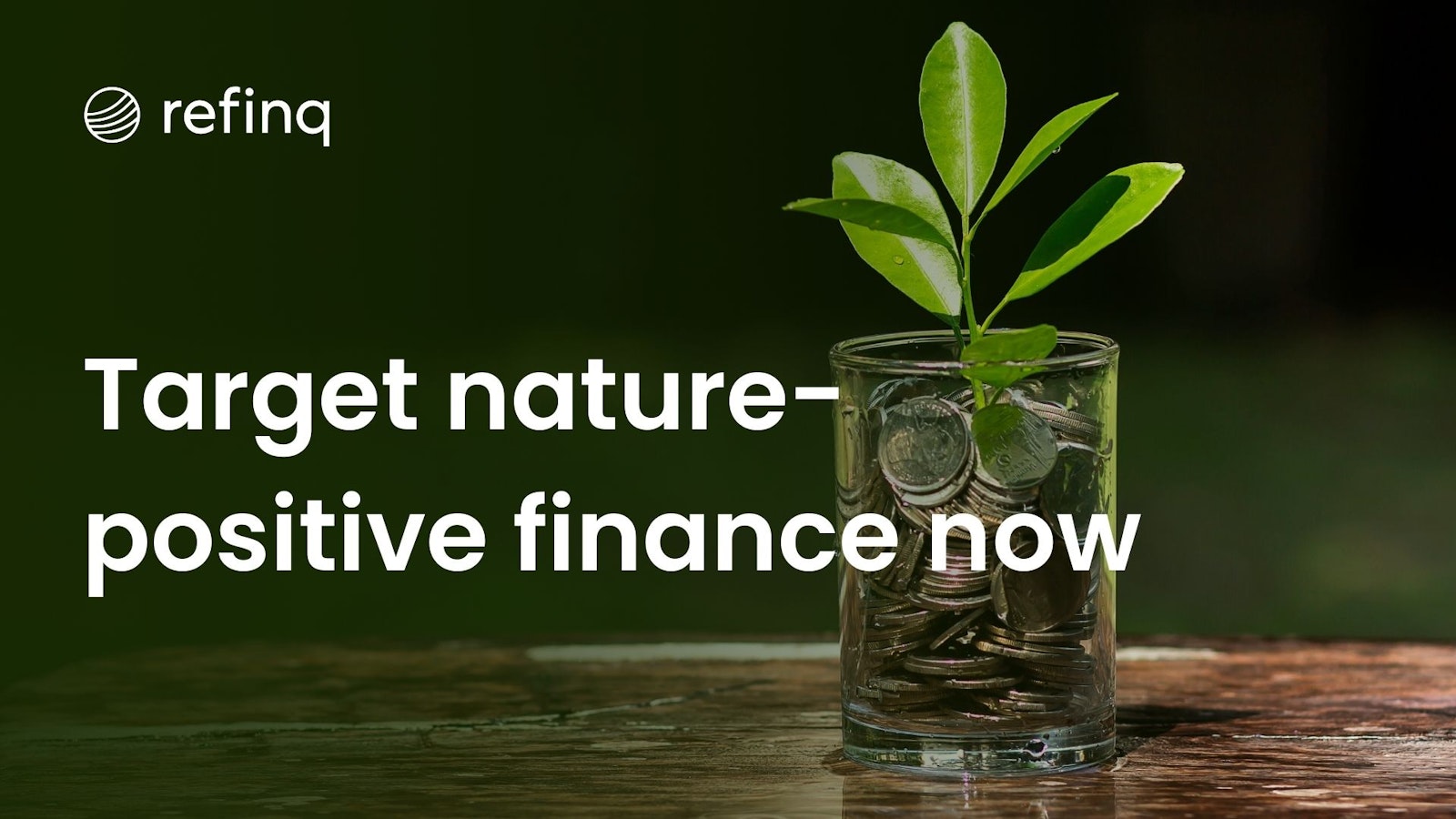

Nature-positive investments focus on initiatives that restore, enhance, or preserve natural ecosystems. These investments not only support biodiversity but also offer long-term financial returns by reducing risks associated with environmental degradation. Financial institutions are increasingly adopting strategies that prioritize sustainability, driven by both regulatory requirements and a growing demand from socially conscious investors. To explore how geospatial analysis can support these investment strategies, check out Refinq's biodiversity solutions.
Nature-positive investments are designed to generate financial returns while simultaneously benefiting the environment. This dual objective ensures that investments contribute to the restoration and preservation of natural ecosystems, promoting biodiversity and ecological resilience. By prioritizing projects that have a positive impact on nature, financial institutions can support sustainable development and address pressing environmental challenges.
The financial sector is uniquely positioned to drive the transition towards a sustainable economy. By allocating capital to nature-positive projects, banks, investment firms, and other financial institutions can influence market trends and encourage responsible business practices. This proactive approach not only supports environmental goals but also enhances the resilience of investment portfolios against climate-related risks.
Implementing effective strategies is essential for financial institutions aiming to achieve nature-positive outcomes. Below are some of the key approaches that can be adopted:
Integrating ESG criteria into investment decisions ensures that environmental and social factors are considered alongside financial performance. ESG-focused investments promote transparency, accountability, and sustainable business practices, aligning financial goals with broader societal objectives. Tools like Refinq's ESG solutions provide the necessary data and insights to evaluate the ESG performance of potential investments.
Green bonds are financial instruments specifically earmarked for funding environmentally friendly projects. By issuing or investing in green bonds, financial institutions can support initiatives such as renewable energy, conservation, and sustainable infrastructure. Sustainable finance instruments, including green loans and sustainability-linked bonds, further enhance the capacity to channel funds into nature-positive ventures.
Impact investing involves directing capital towards projects that generate measurable environmental and social benefits alongside financial returns. This strategy enables investors to support initiatives that address critical environmental issues, such as deforestation, water scarcity, and climate change. Platforms like Refinq's impact assessment tools assist investors in evaluating the potential impact of their investments on natural ecosystems.
Effective risk assessment is crucial for identifying and mitigating environmental risks associated with investments. Advanced tools like Refinq utilize machine learning and geospatial analysis to provide real-time evaluations of climate and biodiversity risks. By processing extensive data sets, Refinq offers granular insights that help financial institutions make informed decisions and develop strategies that minimize environmental risks.
While the shift towards nature-positive investments presents numerous opportunities, it also comes with its own set of challenges.
The regulatory landscape for sustainable finance is continually evolving. Financial institutions must stay abreast of international standards and disclosure requirements, such as the Taskforce on Nature-related Financial Disclosures (TNFD) and the Corporate Sustainability Reporting Standard (CSRD). Adhering to these frameworks ensures compliance and enhances the credibility of nature-positive investment strategies.
Accurate data is essential for assessing the environmental impact of investments. However, obtaining reliable and comprehensive data can be challenging due to inconsistencies and gaps in information. Advanced platforms like Refinq address these issues by integrating extensive data sources and providing robust tools for climate and biodiversity risk analysis.
The growing emphasis on sustainability opens up opportunities for innovation in financial products and services. Financial institutions can develop new investment vehicles, such as green ETFs and sustainability-linked funds, to cater to the rising demand for nature-positive investments. Embracing innovation not only supports environmental goals but also drives business growth and competitive advantage.
Examining successful case studies can provide valuable insights into effective nature-positive investment strategies. For instance, several banks have integrated ESG criteria into their lending practices, resulting in reduced carbon footprints and enhanced portfolio resilience. Additionally, investment firms have leveraged green bonds to finance renewable energy projects, demonstrating the financial viability of sustainable investments.
The future of nature-positive investments looks promising, with increasing awareness and commitment from the financial sector. Advancements in technology, such as artificial intelligence and big data analytics, will further enhance the ability to assess and manage environmental risks. Financial institutions that embrace these innovations will be well-positioned to lead the transition towards a sustainable and resilient economy.
Refinq plays a crucial role in advancing nature-positive investment strategies by providing comprehensive tools for environmental risk management. Its platform processes over 2.5 billion data points from earth observation and climate models, offering granular insights up to 25 meters in any global location. By leveraging machine learning and geospatial analysis, Refinq translates complex environmental data into actionable insights, enabling financial institutions to navigate nature-related risks effectively.
Refinq's solutions, such as due diligence and portfolio impact assessment, empower investors to evaluate the environmental performance of their portfolios and make informed decisions that align with sustainability goals. Additionally, Refinq aligns its assessments with international disclosure frameworks, ensuring compliance with regulatory demands and enhancing the credibility of nature-positive investments.
Nature-positive investments represent a transformative approach for the financial sector, aligning economic growth with environmental sustainability. By adopting strategies that prioritize ecological preservation, financial institutions can drive meaningful progress towards a resilient and sustainable future. Advanced tools like Refinq are instrumental in facilitating this transition, offering comprehensive solutions for managing and assessing environmental risks.
Integrating Refinq into investment strategies enhances the ability to make informed, data-driven decisions that support nature-positive outcomes. With its extensive data integration, machine learning capabilities, and alignment with international standards, Refinq empowers financial institutions to navigate the complexities of sustainable investing with confidence. Embracing Refinq's innovative platform not only strengthens environmental risk management but also fosters long-term financial resilience and sustainability.